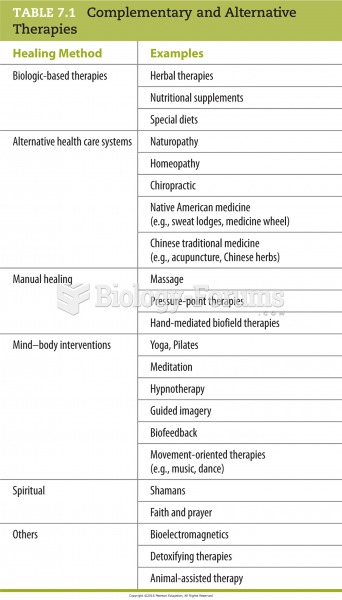This topic contains a solution. Click here to go to the answer
|
|
|
Did you know?
Prostaglandins were first isolated from human semen in Sweden in the 1930s. They were so named because the researcher thought that they came from the prostate gland. In fact, prostaglandins exist and are synthesized in almost every cell of the body.
Did you know?
Asthma cases in Americans are about 75% higher today than they were in 1980.
Did you know?
Women are two-thirds more likely than men to develop irritable bowel syndrome. This may be attributable to hormonal changes related to their menstrual cycles.
Did you know?
Nearly 31 million adults in America have a total cholesterol level that is more than 240 mg per dL.
Did you know?
Alcohol acts as a diuretic. Eight ounces of water is needed to metabolize just 1 ounce of alcohol.
 Male coho salmon exhibit two alternative life history strategies. “Jackâ€ÂÂ
Male coho salmon exhibit two alternative life history strategies. “Jackâ€ÂÂ
 Of four outcomes people can have after exposure to trauma, the most prevalent is resilience. Others, ...
Of four outcomes people can have after exposure to trauma, the most prevalent is resilience. Others, ...





